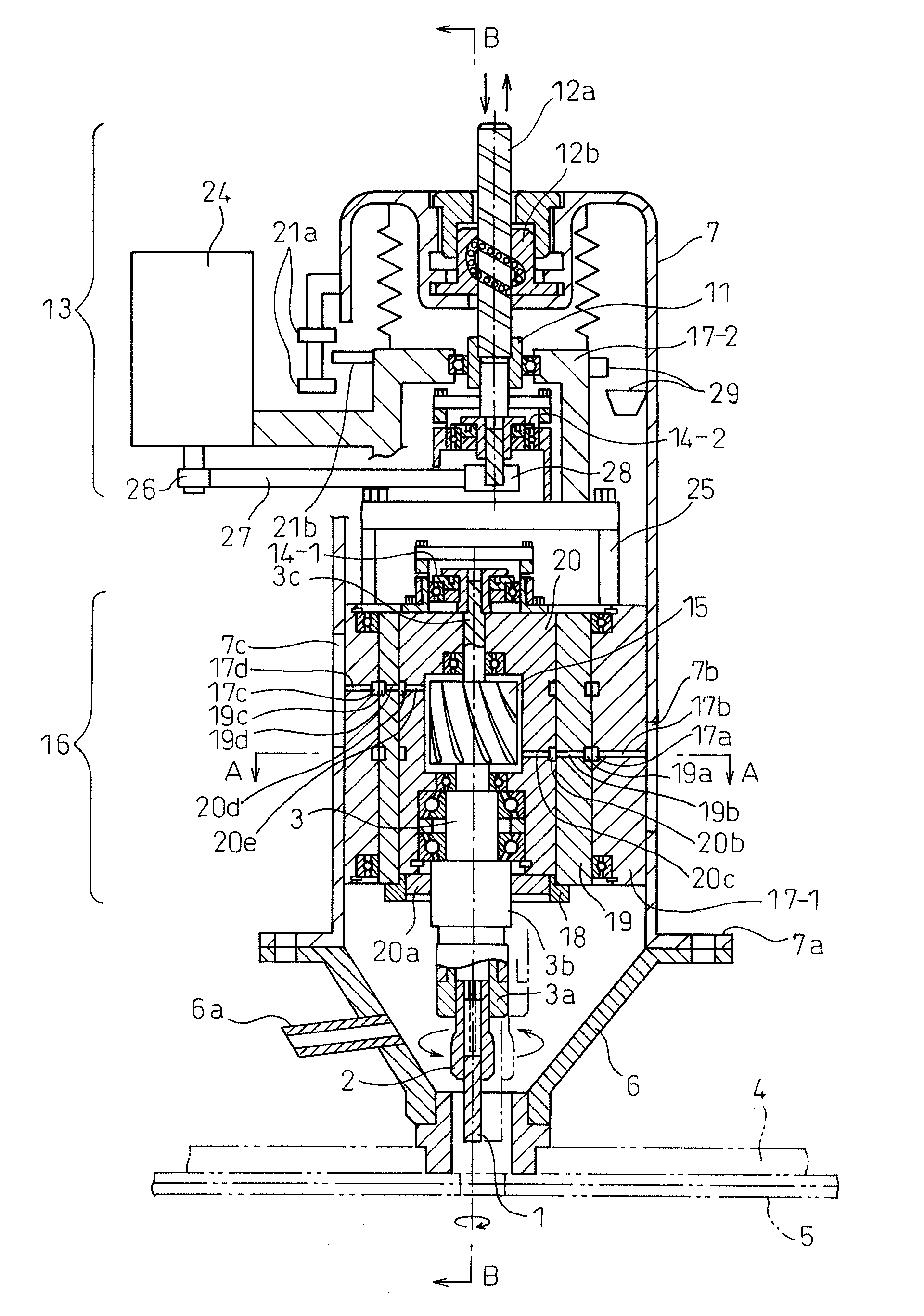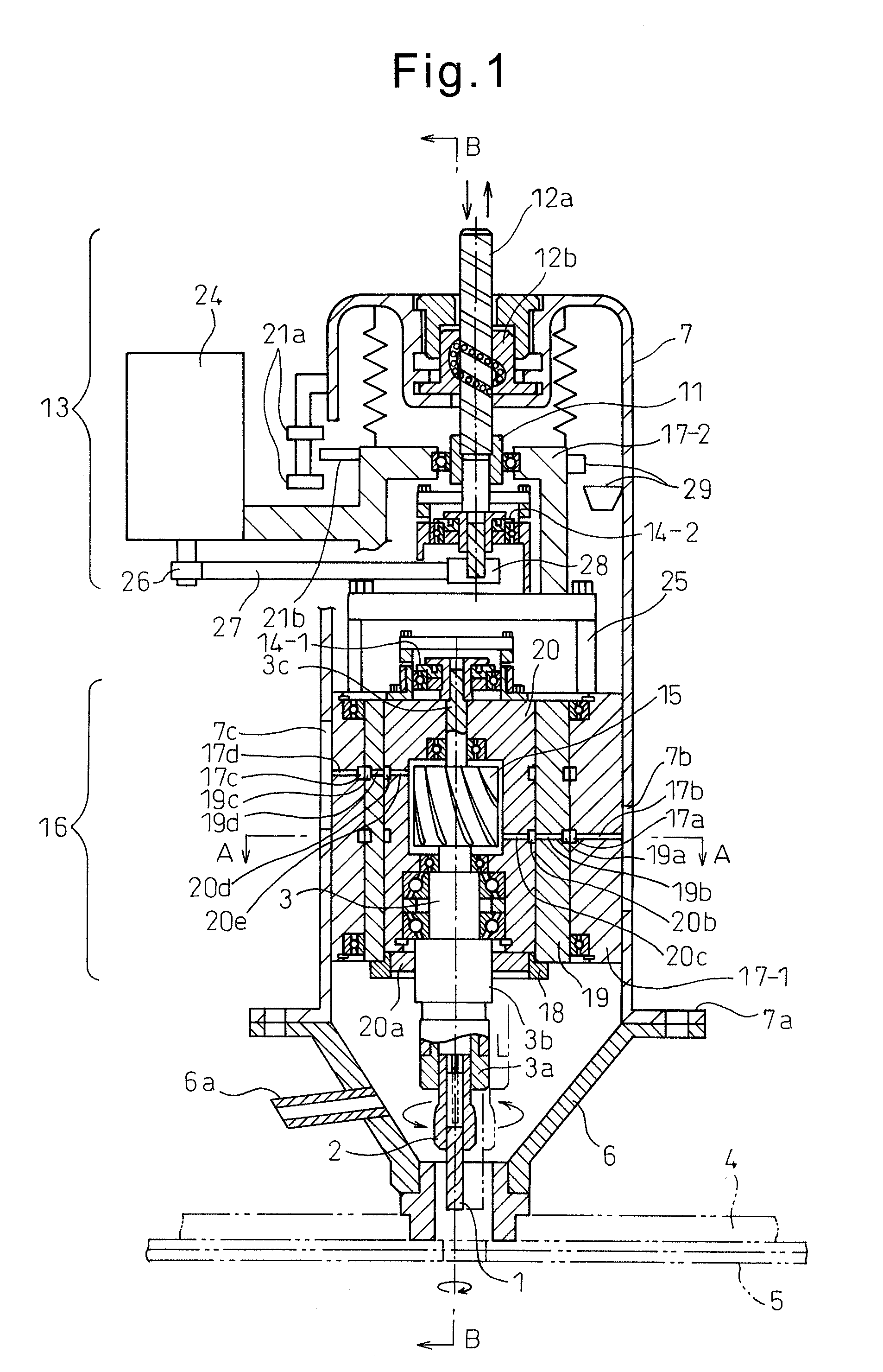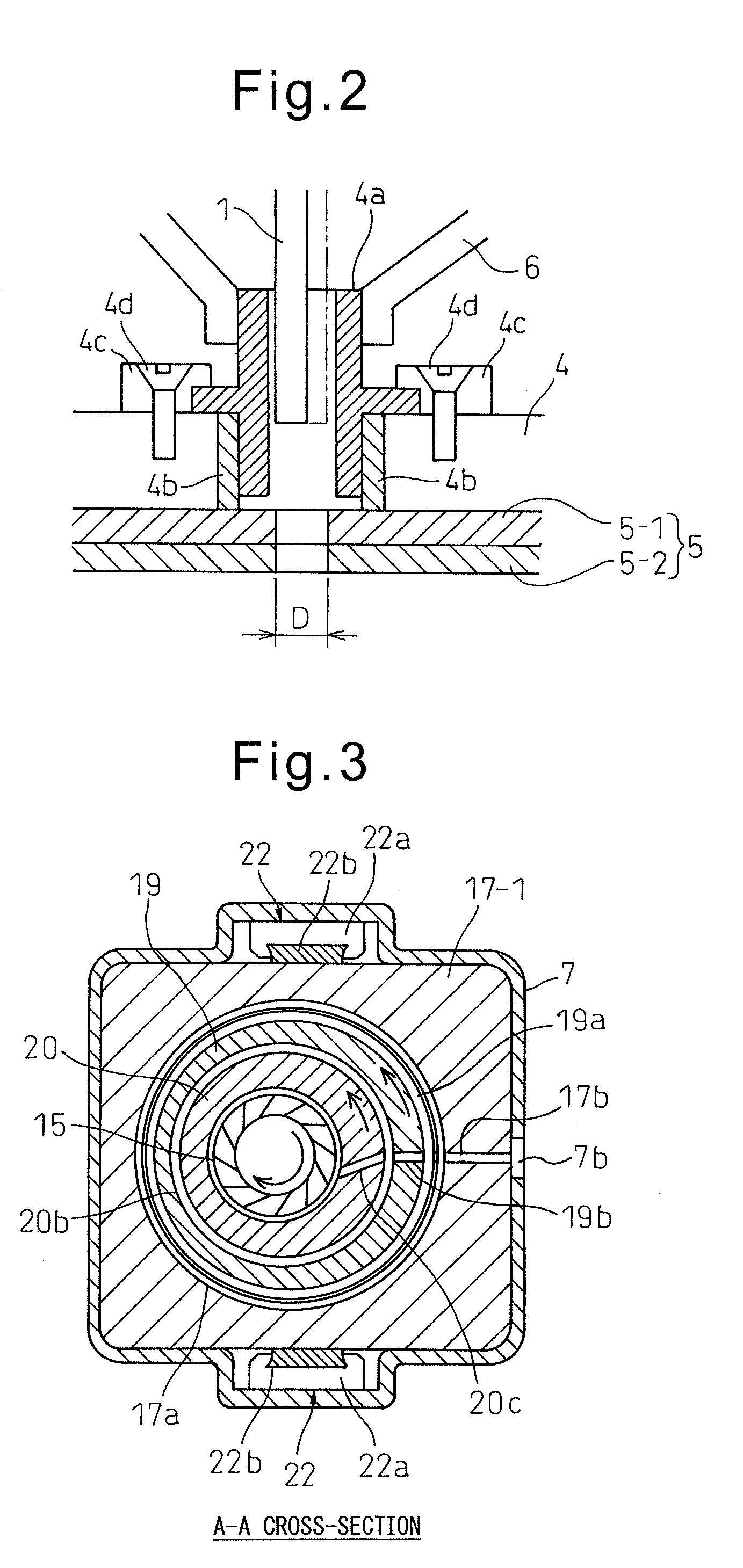Hole making apparatus
a technology of making tools and holes, applied in the field of hole making apparatus, can solve the problems of affecting the efficiency of finishing work, and affecting the life of the drill or other hole making tool, so as to achieve the effect of efficient finishing work, no craters, and more freely and easily setting the combination of rotation
- Summary
- Abstract
- Description
- Claims
- Application Information
AI Technical Summary
Benefits of technology
Problems solved by technology
Method used
Image
Examples
first embodiment
[0035]Below, the present invention will be explained in detail based on the drawings.
[0036]As shown in FIG. 1, an eccentric rotation drive mechanism 16 in a hole making apparatus of the present embodiment is provided with a cylindrical member (below, “inner cylinder”) 20 which houses an air driving means which is comprised of a first air motor 15 (for example, turbine etc.) which is provided at a rotation shaft portion 3 so that an end mill or other hole making tool 1 rotates about an axis of the rotation shaft portion 3 (C1 of FIG. 5) and simultaneously revolves around an center axis of an eccentric cylindrical member (C2 of FIG. 5), a first reduction device 14-1 (for example, Harmonic Drive®) which is coupled to the rotation shaft portion 3 which extends from a holder 2 which holds the hole making tool, and an eccentric cylindrical member (below, “outer cylinder”) 19 which is coupled to an output side of the reduction device, which houses a cylindrical member (inner cylinder) whic...
second embodiment
[0076]Below, the present invention will be explained.
[0077]If replacing the first air motor and second air motor which are shown in FIG. 1 with the first electric motor 31 and second electric motor 32 such as shown in FIG. 6 to obtain an electric motor-drive hole making apparatus and controlling the rotational speeds of the two electric motors by electronic control devices, it is possible to improve the hole making performance of the hole making apparatus much more compared with the case of air motor drive.
[0078]As shown in FIG. 6, the first electric motor 31 is connected to a power cord 34, while the second electric motor 32 is connected to a power cord 36. The power cord 34 passes through the first slide container 17-1 and supplies power to the power cord 34a which is provided passing through the outer cylinder 19 by the brush 33a which is provided at the inner surface of the slide container 17-1. Furthermore, power is supplied to the first electric motor 31 by the brush 33b which...
PUM
| Property | Measurement | Unit |
|---|---|---|
| diameter | aaaaa | aaaaa |
| diameter | aaaaa | aaaaa |
| diameter | aaaaa | aaaaa |
Abstract
Description
Claims
Application Information
 Login to View More
Login to View More - R&D
- Intellectual Property
- Life Sciences
- Materials
- Tech Scout
- Unparalleled Data Quality
- Higher Quality Content
- 60% Fewer Hallucinations
Browse by: Latest US Patents, China's latest patents, Technical Efficacy Thesaurus, Application Domain, Technology Topic, Popular Technical Reports.
© 2025 PatSnap. All rights reserved.Legal|Privacy policy|Modern Slavery Act Transparency Statement|Sitemap|About US| Contact US: help@patsnap.com



